This is part 1 of your bumper summer catch up – with a focus on the general political situation and on education – we will come back to you with a mega update on research next week!
Parliamentary News
ICYMI: New ministerial briefs
- James Cleverly, Secretary of State for Education
- Brendan Clarke-Smith, Minister for Children and Families
- Will Quince, Minister for School Standards
- Andrea Jenkyns, Minister for Skills, Further and Higher Education
- Baroness Barran, Lords Minister/Minister for the School System
- Chair – Commons Science and Technology Committee: With Greg Clark appointed as the Secretary of State (SoS) for Levelling Up, Housing and Communities he had to leave his role as Chair of the Commons Science and Technology Committee. This means a new Chair will be elected after the summer recess, although if the new PM appoints a different Secretary of State Greg may return to Chair the Committee again. The rumour is he doesn’t expect to retain the SoS post once the new PM takes over.
Labour frontbench: Labour have made some shadow Cabinet changes:
- Shadow Cabinet Office Minister Rachel Hopkins (Luton South) has been appointed Shadow Minister for Veterans and Defence People. She retains her shadow CO role to reflect the fact that the government veterans position is also cross-departmental.
- Hopkins takes over from Stephanie Peacock (Barnsley East) who has been appointed Shadow Minister for Media, Data and Digital Infrastructure.
- Peacock replaces Chris Elmore (Ogmore) who has been appointed to the new post of Parliamentary Lead for the Labour Party Chair. He also continues as an Opposition Whip.
Profiling the new ministers
Andrea Jenkyns MP is (currently) the Minister for HE having replaced Michelle Donelan in the post resignation reshuffle. Previously Ms Jenkyns was a member of the Health committee (2015-17) and two EU focussed select committees (her son is nicknamed Brexit!). Jenkyns entered employment after leaving school and achieved her diploma in economics from the Open University and a BA in international relations and politics (graduated 2014) from Lincoln University later in life. Before politics she worked as an international business development manager(15 years), a councillor for Lincolnshire County Council, a music tutor in three secondary schools (she sings soprano and has a huge vocal range – that should liven up Cabinet!), and worked as a musical theatre director.
Jenkyns is a charity fundraiser and supporter of the charity Antibiotic Research UK. She is a trustee and voluntary regional representative for the charity MRSA Action UK. She has also become a reviewer for the National Institute for Health Research.
When elected to parliament her campaign priorities were the development of brownfield sites, delivering excellent local health services and growing the local economy. She is against repealing the hunting ban. Jenkyns has stated that the death of her father at a local hospital in 2011, from the hospital superbug MRSA, motivated her to stand as an MP, to ensure compassionate care is a priority. In November 2015 she launched a campaign to promote good hand hygiene in schools and hospitals.
Jenkyns received notoriety when she presented her middle finger to the crowd gathered outside of Downing Street calling for Boris’ resignation. She described the crowd as a “baying mob” and said she was standing up for herself.
James Cleverly also went into work after leaving school (he attended a selective school). He joined the army (left due to injury) and still volunteers with the TA. James studied at Thames Valley University graduating with a degree in hospitality and management. Swiftly followed by a move into magazine and digital publishing where he set up his own company.
Cleverly’s political career began as a London Assembly member, he was a board member of the London Development Agency, and unsuccessfully ran for Parliament in 2005. He was finally elected in 2015 and emphasised local business alongside road and internet connectivity. He put forward a Private Members’ Bill in 2015 to give further powers to the Health and Safety Executive (it didn’t succeed – but they rarely do). He was a founding member of Conservatives for Britain (a group calling for fundamental change with the UK’s relationship with the EU), voted to leave the EU and became the Parliamentary Under-Secretary of State at the Department for Exiting the European Union in April 2019. He was appointed Deputy Chair of the Conservative Party in January 2018. He was then appointed as Minister of State for Middle East and North Africa in both the Foreign and Commonwealth Office and the Department for International Development in February 2020. North America was added to his responsibilities in December 2021. And he became Minister of State for Europe and North America in February 2022. He has been a member of the APPG Showing Racism the Read Card since 2017. His political interests are stated as local business, technology, trade out of poverty and international trade.
He’s married to his university girlfriend and recognises the importance of family values. He’s President of Bromley District Scouts. He gave a daring interview in November 2015 in which he admitted to trying cannabis at university, and watching online pornography. He also said he would like to become leader of the party. When Theresa May stepped down he announced his candidacy in the leadership content but withdrew a week later as he recognised he was unlikely to make the final cut.
PM Candidates
YouGov released a poll of the leadership race showing Truss currently leads Sunak by 69% to 31% among Tory members. Here are the latest pledges from the prime ministerial candidates relating to education and young people.
Liz Truss:
- Would lift ban on new grammar schools and replace failing schools with them
- Pledged to expand high-performing academies and replace failing ones with new free schools and grammars
- Would focus on literacy and numeracy – stick to the current government target for 90% of primary children to reach the expected standard in literacy and numeracy – as well and post-pandemic catch-up
- Wants to give working parents access to childcare around the school day and extend the range of providers who accept government childcare entitlements
- Would also follow through on government plans to change staff-to-child ratios for early years providers
- All A Level students with three A*s would be automatically offered interview at Oxford or Cambridge. (Wonkhe have a great blog on the topic highlighting that it isn’t the social mobility improvement Liz believes, and really highlights her lack of awareness.)
- Would look to introduce post-qualification admissions (PQAs) for university entry – purported to be considering moving the start of the university academic year to January, to accommodate PQA reform
- Pledged to move subsidies from poor quality degree courses to vocational training
- Would create designated “Investment Zones” to drive innovation
Rishi Sunak:
- Would create a new British Baccalaureate that would require all 16-year-olds to study core subjects, including maths and English, beyond GCSE up to age 18
- Would reverse ban on new grammar schools and support expansion
- Would ask Ofsted to assess the quality of sports and PE in school at every inspection
- Also pledged to open up school sport facilities over summer holidays
- Suggested he would reform the curriculum to focus on workplace skills, as well as science, maths and technology
- Pledged to improve professional development for teachers, as well as introduce AI and technology to the classroom to reduce teachers’ workloads
- Committed to the plan to open 75 new free schools, as announced by the government in June
- Would give school trusts an “accountability holiday” for two years after taking on underperforming schools
- Plans to stop organisations such as Stonewall from delivering sex and relationships education (SRE)
- Pledged to put SRE on to a statutory footing, providing schools with guidance on what is acceptable, and giving parents the ability to request to see teaching materials, including from external groups (it’s understood this would be done via an amendment to the Schools Bill)
- Would ban all 30 Confucius Institutes in the UK and force universities to disclose foreign funding partnerships of more than £50,000
- Would “strengthen networks of technical institutions and their links with industry, as well as giving them powers to award degrees”
- Would create a “Russell Group of world-class technical colleges” to improve prestige of vocational training (this idea is akin to that within the Northern Research Group pledge card, which Sunak signed)
- Wants to “clamp down” on some university degrees that don’t lead to good outcomes – assessing their quality through drop-out rates, graduate jobs, and salary thresholds
- Would expedite the Higher Education (Freedom of Speech) Bill, currently sitting with the Lords
Lord Hague, the former Conservative leader, has weighed into the leadership race with suggestions on how the PM hopefuls could increase the science and technology prowess of the UK, including the creation of a secretary of state for science and technology.
Voting will close on 2 September. The new PM is still scheduled to be revealed on 5 September.
Overall – we would not expect a major change of direction in relation to HE. The ferocity of the culture wars will perhaps depend on who the Secretary of State for Education and the Minister for Universities are in a reshuffled government, but Liz Truss looks likely to maintain the current direction if she wins. Her espousal of PQAs, after the DfE consultation was ditched by Nadhim Zahawi earlier this year, will cause sighs across the sector, but at least the DfE have an oven ready set of consultation responses they can use to inform the next step.
OFS consultations
Consultation outcomes – the outcomes of the three outstanding OfS consultations(which closed in March) have been published – although there is a lot of detail still to come – and we have a new one (with a very tight deadline)
NSS consultation: Following earlier consultations on changes to the NSS, the OfS have just launched another, closing on 1st September.
This has been slightly challenging area for the OfS, with government ministers making bold statements about how the NSS causes “dumbing down” and demanding it be dropped as a metric for regulatory purposes and the TEF – and the OfS resisting on the basis that it provides useful context and informs action on student experience at universities.
The latest consultation, issued on 28th July with a 1st September deadline (what sort of response do they expect?) includes some options for change to the questionnaire, and proposed removing question 27 completely for England (which addresses the dumbing down point). They ran a pilot of some of these questions this year and have published a review of the pilot which informed this consultation.
Main changes
- The NSS currently opens in January and runs until the end of April. We are proposing to shorten the survey window by delaying the launch of the survey to mid-February
- We propose establishing a four-year review cycle for the NSS to ensure the survey can reflect changes in practice and continue to meet the needs of the UK funders and regulators, students and providers. To date, the survey has been reviewed on an ad hoc basis with the last major review conducted in 2015
- The questionnaire currently uses the Likert scale, which measures student agreement or disagreement with particular statements. 22. We propose to change the questionnaire to more direct questions for 2023 – which would change how questions are asked – to offer students the opportunity to rate different aspects of their experience on a scale designed specifically for a particular question
Some examples are given in the consultation but they have not made final proposals for all of the questions, and are still thinking about the scales in some cases – see Annex D of the consultation.
In addition to the changes to existing questions, there are some new proposed questions.
They are proposing to remove the summative question [question 27] for England. A version of the summative question would remain for Wales, Scotland and Northern Ireland.
The consultation says:
- There were significant concerns about the wording of the current question. In particular, the term ‘satisfaction’ was regarded as unhelpful as it detracted from the wider findings of the survey and was seen as too consumerist in nature. There were also concerns about the use of the summative question by the media in England when reporting on the outcomes of the NSS each year. The current question 27 on overall satisfaction is the most commonly used metric in league tables, and its removal might make the results less susceptible to ranking. Phase one of the review found that the question was unhelpful for the survey as a whole. Most questions ask students to rate their experience of different aspects of their academic experience, and no other question asks about satisfaction. Yet critics often derogatively dub the NSS as a ‘satisfaction survey’. There was no consensus on what should replace it
There are proposed questions on freedom of expression and a provider’s mental wellbeing provision.
It will be interesting to see what the outcome of this consultation is although we don’t expect an outcry in favour of question 27 and given the timing of this (and the OfS approach to consultations (see below), they are likely to finalise their views on the outstanding questions and plough ahead. Wonkhe have two blogs: one reviewing the proposals, (pithy summary of an interesting blog: “poor show”) and one looking at what else could be considered. A summary of responses to the consultation will be published in Autumn 2022. The OfS anticipate implementing any changes in the 2023 NSS. If you wish to comment on an aspect of the consultation please contact Jane.
Teaching Excellence Framework
The final decisions have now been made about the TEF timetable. Guidance will be published in late September; the submission window will open at that time and will close in mid-January. Outcomes will be published in September 2023. The outcomes are here. Few changes have been made to the proposals, there is a bit of clarification on the new “educational gain” aspect (which is largely being left to providers to define), to make apprenticeships an optional element in the assessment, to make the provider submission 25 instead of 20 pages, and to clarify the requirements for student submissions. They have not yet made a decision about how much of the data will be published.
- Of our 15 proposals most respondents agreed with 11 of them. Views on one proposal were split and a majority disagreed with three proposals
- Disagreement was most strongly expressed in relation to:
- proposals 3 and 4 which relate to the categories in the rating scheme (Gold, Silver and Bronze)[ Approximately two thirds of respondents tended to disagree or strongly disagree with this proposal], [no change was made]
- the use of ‘Requires improvement’ where there is an absence of excellence[ Almost three-quarters of respondents tended to disagree or strongly disagreed with this proposal], [no change was made]
- proposal 15 which relates to the timeline for implementation [almost nine in ten of respondents disagreeing or strongly disagreeing]
After the publication of a set of new licence conditions earlier this year, which re already in force, the last one, B3, has now been finalised and will come into force on 3rd October. B3 is the condition that applies minimum thresholds for continuation, completion and progression into highly skilled employment. These thresholds are absolute, not benchmarked, and will be applied across a range of splits – notably level (including postgraduate) and subject. Some outcome measures were used before in the TEF, split by characteristic – but that was for undergraduate only and at an institutional level, not split by subject, so this is a major change.
Licence condition B3
The B3 proposals were fairly controversial, as is illustrated by the response that the OfS got:
- Around three-quarters of respondents disagreed with the proposed timing of implementation, almost two thirds disagreed with the approach to constructing the student outcomes indicators and almost half disagreed with the approach to setting numerical thresholds
But they are going ahead anyway, with only minor changes.
- They have decided to adopt the cohort tracking methodology for constructing the completion outcome measure – two options were proposed in the consultation.
- The final numerical thresholds will be published in September, and will be no higher than those proposed in the consultation.
- More information about publication of the B3 data and the TEF data will be available in September.
You can read the final condition B3 here. For reference, these were the original proposed thresholds (and as noted above, the final ones to be confirmed in September will not be higher than those originally proposed).
The third consultation was about constructing the indicators for both of the above and the outcomes are here.
In a blog, the Director of Quality says:
- Our revised condition of registration (condition B3) means that students from all backgrounds can achieve positive outcomes and are protected from performance that is below our minimum expectations, whatever, wherever and however they study. At the same time, through the TEF, we want to incentivise universities and colleges to achieve excellence in teaching, learning and their outcomes – above and beyond our minimum expectations and in a way that recognises the full diversity of higher education courses and many ways students study.
- We’ve carefully considered more than 600 responses to our phase three consultations. We’ve made some changes as a result of those responses, but we remain committed to the policy agenda we set out in January….
- …Some responses to our consultation asked whether positive outcomes for students should be defined more broadly when students may gain wide-ranging benefits from their studies. We recognise that higher education produces wider value than we have captured in our indicators. This might be a reason to look at additional measures in the future, but it shouldn’t prevent us from measuring and regulating the things we already know matter to students: continuing through to the end of their course and progressing successfully into the next stage of their career or studies. We must be able to protect students from courses which don’t deliver these benefits.
In a blog for Wonkhe, David Kernohan and Jim Dickinson give their perspectives, including this one, which highlights the key contradiction at the heart of all this:
- For some time now, OfS has been saying that opportunities for study are not meaningful if students are able to choose or continue on “low quality courses delivering weak outcomes” because the regulatory system has endorsed such performance. But does that mean working over time to improve the quality and outcomes, or killing off those courses – especially if they’re a component of your partnership portfolio? Minister for skills, further and higher education Andrea Jenkyns says “Following on from the first wave of OfS inspections, this consultation response is an important next step to halting dead-end courses.” But the OfS documentation says that it recognises that providers may choose to close courses rather than take steps to improve student outcomes, and if it suspects that’s been happening it will “interrogate whether a provider had taken action to improve its performance” and sought to “evade regulatory action by closing courses with weak performance”. How about if we sleep a little bit longer and forget all this nonsense?
One (cynical) way to read it, in today’s politicised environment – closing a course to avoid regulatory interference is BAD – being made to close it by the regulator is GOOD (for the regulator and the government).
The Russell Group aren’t best pleased with the outcomes. Sarah Stevens, Director of Policy at the Russell Group said:
- We support the OfS’s efforts to set challenging baselines that will ensure all students are entitled to a minimum quality of provision. However, this needs to be delivered in a proportionate and risk-based manner so low-risk providers can get on with the job of providing students with a high-quality experience. In particular, we are concerned that plans to change the way courses are prioritised for investigation each year will increase the burden on low-risk providers, and hope the OfS can move to a more consistent and transparent approach.
- The plans to take into account absolute values and the increased weighting of the provider submission when assessing a provider’s performance will help ensure TEF awards are more robust. However, the TEF remains a significantly burdensome activity and we are concerned that the implementation timeline does not give the sector enough time to fully engage with the changes announced. With the TEF submission period beginning in September, it’s also vital that the OfS publish detailed guidance to providers as soon as possible.
Quality of HE courses: Oral questions from Monday 4 July
- Q – James Grundy (Leigh) (Con): What progress he has made on improving the quality of higher education courses.
- A – The Minister for Higher and Further Education (Michelle Donelan): For the first time, universities will be subject to stringent minimum thresholds for student outcomes on completion rates and graduate jobs. Boots-on-the-ground inspections have begun, and through our transparency drive to give students all the information that they need and a focus on participation and outcomes, we are driving out the pockets of poor quality in our world-leading higher education sector.
Mini horizon scan
A proper horizon scan, which we would usually do at this time of year, may seem a little bit challenging when the last few years have shown that the priorities and convictions of those in the Secretary of State and Minister for Universities role have had a huge impact on direction: Jo Johnson of course was behind the creation of OfS, the TEF and the new regulatory regime, but to give some more examples, Gavin Williamson ramped up the focus on “poor quality courses” (and tried hard on PQA). Damien Hinds started the campaign that eventually stopped conditional unconditional offers. We can thank Michele Donelan for ramping up the culture wars, and leading the charge on free speech.
But a lot of fairly major change is already in hand, things are fairly well developed and therefore unlikely to change. There may be differences in emphasis and nuance, and additional priorities (PQA for Liz Truss) but we would not expect major shifts in approach to any of the current hot topics.
Of course, there will be a general election at some point – the latest this can be is 24th January 2025 although after the fixed term legislation was repealed the PM can seek an earlier election. Given the cost of living crisis alone, a newly installed PM this autumn is unlikely to find that appealing, as they will want to make some sort of impression before going back to the people.
| Levelling up |
A flagship Johnson policy. Linked to the access and participation work referenced below.
The Skills and Post-16 Education Act became law in April. It will be for the new leader and their team to implement this including the local skills improvement plans (chapter 1 of the new act), changes to technical education including continuing the implementation of T-levels (and closing some BTECs), and changes to implement the lifelong learning proposals (see below).
See more in the skills section below on local skills improvement plans. |
Levelling up as a headline may not be the branding of choice for a new leader but the policies are likely to stay in place, certainly as regards skills and technical education |
| Lifelong learning |
The Skills and Post-16 Education Act makes provision for modular learning.
LLE was the subject of a DfE consultation which closed in May, and the outcome will presumably be finalised by the new ministerial team.
Read more: policy update 3rd March 2022 and 3rd May 2022 |
As noted, this is the big flagship HE policy for the Johnson government and his successor is unlikely to change tack on this.
|
| Student number controls |
This was part of the big release of material in March responding finally to the Augar review.
It is now expected (and Michelle Donelan confirmed, although that might change) that controls will be applied on a university and subject basis to restrict numbers on certain courses that do not meet B£ or other licence conditions. We await the outcome of this part of the (DfE, not OfS) consultation, which will presumably be in the in-tray of the new universities minister.
Read more: policy update 3rd March 2022 |
This is unlikely to change under a new team, although there may need to be more work on how it will be implemented in practice. |
| Minimum eligibility requirements |
Another part of the Augar response in March, intended to limit access to HE (and control costs}. They consulted on a requirement for a pass (grade 4) in GCSE in English and Maths, or the equivalent of 2 E grades at A level. These would not apply to mature students (over 25), part-time students, those with a level 4 or 5 qualification or students with an integrated foundation year or Access to HE qualification. If they apply the GCSE requirement it would not apply to someone who has subsequently achieved A levels at CCC or equivalent.
Read more: policy update 3rd March 2022 |
This is unlikely to change under a new team, although there may need to be more work on how it will be implemented in practice – especially if it requires changes to student loan legislation. |
| Access and Participation |
Big focus from the OfS now on universities having an impact on school level attainment and supporting disadvantaged students. The Director for Fair Access and Participation has been clear about the direction:
· strategic partnerships with schools to raise attainment
· improving the quality of provision for underrepresented students
· developing non-traditional pathways and modes of study
Read more: policy updates on 4th April and 14th February |
OfS agenda: not expecting any change with a change of leader or ministerial team.
|
| Regulation – quality and outcomes |
As above, being delivered this year with little change from the original proposals. Will lead to regulatory intervention based on student outcomes that are below the absolute levels set and these metrics will be applied to PGT and PGR students as well as UG.
Apart from B3, discussed above, the other B conditions introduced earlier this year have a lot of detail about course content and delivery – where there are concern about outcomes, there are complaints or other reasons for the OfS to look this can include investigating whether course content is “up to date”, for example.
Linked to this, the OfS announced in the early summer that they would be looking at online delivery in some universities after Michelle Donelan roundly criticised the speed (or lack of it) at which (some) universities had returned to full on campus learning last year. |
OfS agenda: not expecting any change with a change of leader or ministerial team.
Note the points about grade inflation below.
If online learning is still a story in the new academic year, expect more government and OfS pressure.
|
| Grade inflation |
One of Gavin Williamson’s earlier themes which he stopped talking about, but which is now back with a vengeance as a topic for university bashing. UUK have gone early with a sector commitment to reduce by 2023 the proportion of students achieving firsts and 2:1s to pre-pandemic levels, and a renewed commitment to publishing degree outcomes statements. The OfS have been making strong statements about “unexplained” grade inflation for some time but have now started to clarify what they might do about it, new condition B4 has a direct reference to the ongoing credibility of awards and so the OfS now have a clearer mandate to intervene in what has always been seen as a question of institutional autonomy.
Read more: 5th July policy update |
OfS agenda: not expecting any change with a change of leader or ministerial team.
The OfS will be looking to ramp up intervention in this area and will be examining this year’s degree outcomes statements closely.
|
| TEF |
As above, being delivered this year with little change from the original proposals. Includes a focus on subject level performance and performance across split characteristics and includes a new “requires improvement” rating – and getting that caps fees at £6000. |
OfS agenda: not expecting any change with a change of leader or ministerial team. |
| NSS |
Following earlier consultations on changes to the NSS, the OfS have just launched another. See above for more information. |
|
| Student information and marketing, admissions |
One of Michelle Donelan’s signature policies. There has been discussion of marketing practices before, storied about university marketing budgets etc but the focus was mostly on conditional unconditional offers. MD went further with the DfE guidance on advertising that came out on 1st July with some frankly bizarre requirements to reference out of date subject level data in all marketing material and advertisements.
Read more: 5th July policy update
This PQ suggests the government are sticking with it for now: Encouraging universities to advertise (1) subject drop-out, and (2) employment, rates for courses
This followed the Fair Admissions Code that was published in the Spring by UUK which outlaws conditional unconditional offers, and talks about incentives and information alongside more general principles. This was opt in – and most have.
Read more: 10th March policy update |
May be less of a priority for a new Minister. The DFE guidance is bizarre, voluntary and possibly unworkable – and it seems very strange for the DfE to issue such guidance which should really come from the OfS. It smacks of political campaigning rather than serious regulation and we await the next steps on this with interest.
Fair admissions, though, will remain on the agenda, though the Director of Fair Access, and the OfS. |
| PQA |
This was a Gavin Williamson policy. As noted above, Liz Truss wants to reopen this after Nadhim Zahawi shelved Gavin Williamson’s efforts. The range of potential outcomes from the DfE consultation are presumably sitting on a shelf somewhere. The responses to the consultation were:
Two-thirds of respondents (324/489, 66%) were in favour of change to a PQA system in principle, but many respondents were concerned by practical implications of how it could operate, and 60% respondents felt that the models of PQA would be either worse than, or no better than, current arrangements. There were a variety of different models favoured but no consensus as to what change should look like. |
If Liz Truss wins she will have a lot on her agenda, but we can expect the new ministerial team to at least brush off the recommendations and have another look.
|
| Free Speech |
A key bit of the Michelle Donelan manifesto for future promotion. As noted below, the OfS data doesn’t demonstrate a significant issue but that does not stop the rhetoric. The higher Education (Freedom of Speech) bill is now at committee stage in the Lords, having made it through the Commons. Expect lively debate, amendments and eventual ping pong as the HE informed members of the Lords contest the whole premise of the bill as well as the detail.
Read more: 5th July policy update |
Under a Liz Truss government this is very unlikely to be significantly watered down. Rishi Sunak has demonstrated less appetite for the culture wars so much would depend on the ministerial team. Expected to pass (eventually) and but practical impact may be low (as the sector have long argued this is a solution looking for a problem) |
Skills, skills, skills…
Occupational skills needs: The DfE published independent research examining changing skills needs within certain occupations in the next 5-10 years:
- managers
- science and technology
- skilled trades
- health
Technical and digital skills
- The key skills that are, and will continue to be, required are the knowledge and effective use of relevant technologies
- Digital literacy is already an essential (if basic) requirement, while understanding and use of data will only increase in importance in future
- Some specific technical skills are (and will be) needed in health and skilled trades (e.g., ability to adapt clinical skills to developments in health and care, knowledge of the technical or scientific basis of work, understanding of relevant standards and legislation)
- Expected changes in the selected occupations and emerging skills point to: (i) skills needs in using specific new hardware and software; (ii) data science skills; (iii) the need to apply, or adapt, skills to future-related goals such as combatting climate change
- Participants suggested that the promotion of multiple routes into these professions, along with clear definitions of skills and qualifications and the funding of continuous professional development, should be improved.
Communication and people skills
- People and communication skills are and will likely remain critical in future with the ability to work in a team being key in addressing complex needs in coordinated way
- The ability to provide long-term vision, exploit opportunities and manage risks was identified as most important for managers and health professions while awareness of equality, diversity and inclusion emerged strongly across examined occupations, both with a view to current and future skills needs
- Areas of change and adaptation focused on skills required for modern ways of working as well as communicating and working collaboratively to address climate change, improve sustainability and meet expectations for increased efforts on equality, diversity and inclusion
- Teamwork skills were also highlighted as a key area for intervention with current teaching and training not seen to impart these skills sufficiently at present.
- It was also noted that policy intervention on culture change was key to generating the necessary people and communication skills for the above goals but also a long-term process requiring open minds from all stakeholders.
Local Skills Dashboard: The DfE also launched the prototype of its local skills dashboard showing a subset of employment and skills statistics at Local Enterprise Partnership (LEP) level to support local skills planning and deliver (including LSIPs). The statistics include:
- employment rates and employment distribution by occupation
- online job vacancy units
- further education aim achievement volumes and achievements by sector subject area
The dashboard has been produced to support the aims of the new Unit for Future Skills, which was a key pledge within the Levelling Up White Paper earlier this year.
Local Skills Improvement Plans: And we’re not done yet – the DfE also published statutory guidance for the development and review of local skills improvement plans (LSIPs). It sets out the process for developing and reviewing an LSIP and the duties placed upon relevant providers once there is an approved LSIP in place.
- LSIPs set out the key priorities and changes needed in a local area to make post-16 technical education or training more responsive and closely aligned to local labour market needs;
- an LSIP will provide an agreed set of actionable priorities that employers, providers and stakeholders in a local area can get behind to drive change;
- the agreed priorities will be informed by evidence of unmet and future skills needs and meaningful engagement between employers and providers;
- an LSIP should not attempt to cover the entirety of provision within an area but focus on the key changes and priorities that can gain traction and maximise impact;
- the priorities should look up to three years ahead. It is expected that the LSIP process will be repeated around every three years with interim reviews;
- duties in respect to LSIPs have been placed upon specific providers that deliver English-funded post-16 technical education or training. These duties apply to Sixth Form Colleges where they deliver post-16 technical education for example T-Levels and BTECs; 3 and
- the LSIP should describe how skills, capabilities and expertise required in relation to jobs that directly contribute to or indirectly support Net Zero targets, adaptation to Climate Change or meet other environmental goals have been considered.
Parliamentary questions
HE Bursaries (temporary!): Education Secretary James Cleverly has announced new bursaries to support learners taking part in the flexible short courses trials.
- Learners who could struggle with study-related costs…can now apply for up to £2.5 million worth of targeted bursary funding to help them access new higher education ‘short courses’… 22 universities and colleges across England will be offering over 100 short courses to students from this September as part of a 3-year trial.
- These courses that could be as short as 6 weeks – or as long as a year if studied part-time – in subjects vital for economic growth including STEM, healthcare and education.
- To support this flexible study, learners can now apply for tuition fee loans created especially for the short coursesto support them for the duration of their study and administered by the Student Loans Company.
- Alongside this, bursary grants will be available for learners who need extra financial support to pay for additional costs associated with study… This includes the costs of learning materials such as books, childcare fees and learning support for disabled students.
- The bursary is for the time-limited trial only, as broader decisions on the lifelong learning maintenance support are still subject to government policy decisions.
Degrees not required: The Chartered Institute of Personnel and Development (CIPD) calls on employers to think strategically about their workforce requirements in new report. New CIPD research highlights that the majority of employers (57%) still mainly look for degrees or post-graduate qualifications when recruiting staff. While a degree is a requirement for certain occupations and roles, the CIPD is warning that too often employers base hiring decisions on whether someone has a degree or not, regardless of its relevance. By doing this, the CIPD says employers could be missing out on key talent, exacerbating skills gaps and reducing employment opportunities for people.
It is calling for employers to ensure that employers are thinking carefully about whether a degree is required for roles when hiring, and to invest in a range of vocational training options to upskill existing staff. The call comes at a time when the UK is facing a tight labour market and firms are struggling to find the skills they need in job candidates and in their own workforces.
Free Speech
The OfS published data on the number of speakers or events that were rejected by English universities and other higher education providers in 2020-21. The data is published alongside sector-wide information on the data universities and colleges return to the OfS as part of their compliance with the Prevent duty.
The data shows that 19,407 events were held by universities and colleges with external speakers in 2020-21, with 193 speaker requests or events rejected. A further 632 events were approved subject to mitigations. In previous years:
- 53 events or speaker requests were rejected in 2017-18
- 141 were rejected in 2018-19
- 94 were rejected in 2019-20.
Commenting on the data, Susan Lapworth, interim chief executive at the OfS, said:
- This data shows that more than 99% of events and speaker requests were approved in 2020-21 and suggests that – in general – universities and colleges remain places where debate and the sharing of ideas can thrive.
- However, it is the case that the number and proportion of rejections sharply increased in 2020-21, with almost 200 speakers or events rejected. We would be concerned if those cases suggest that lawful views are being stifled.
Parliamentary questions
International Donors: Oral questions from Monday 4 July
- Q – Dr Julian Lewis (New Forest East) (Con): Do the Government share my concern at the injection of vast quantities of communist cash from countries such as China and Vietnam into our universities—Oxbridge colleges in particular? Will they set up a taskforce to examine the problem and make recommendations?
- A – Michelle Donelan: We have recently added a further clause to our Higher Education (Freedom of Speech) Bill to ensure that there is more transparency when it comes to the donations that our universities receive.
Quality Changes
The QAA made a surprise announcement that they would cease to be the Designated Quality Body in England from 31 March 2023.
Wonkhe report: In a move that sent shockwaves last week, the agency has chosen to “demit” statutory responsibilities in order to comply with international quality standards, thus remaining eligible for work in other UK nations and overseas. Though there will be no immediate impact on students or (for the most part) providers, the announcement embarrasses the Office for Students – the quality work it has been asking QAA to do deviates from those international standards by not involving student reviewers and not meeting transparency requirements.
More details in the blog – What does QAA walking away from being the designated quality body mean for universities? David Kernohan tries to make sense of it all.
Student Loans
The DfE and Student Loans Company announced that student loan interest rates will be reduced to 6.3% from September 2022 for those on Plan 2 and Plan 3 loans.
In June (in light of a potential 12% interest rate due to inflation) the Government used predicted market rates to cap interest rates to a maximum of 7.3%. The actual market figure is now 6.3%, so the cap has been reduced further to reflect this. The current maximum interest rate is 4.5%.
As we all know, these changes don’t affect actual payments, only the rate at which the amount owned will accrue. As a consequence, press stories that this reduces the burden on graduates are nonsense, given that the majority will not repay in full.
You can read all the detail here.
Student Loans: Oral questions from Monday 4 July
Q – Carol Monaghan (Glasgow North West) (SNP): The number of graduates owing more than £100,000 in student loans has gone up by more than 3,000% in a single year, with over 6,500 graduates now having six-figure balances. Next year, with inflation, things could be even worse. Will the Secretary of State detail what urgent action he is considering to tackle the huge levels of graduate debt?
A – The Minister for Higher and Further Education (Michelle Donelan): As the hon. Member will know only too well, we responded to the Augar report in full a few months ago. We tried to get the right balance in who pays, between the graduate and the taxpayer, so that we have a fair system in which no student will pay back more in real terms than they borrowed. This Government are focused on outcomes, making sure that degrees pay and deliver graduate jobs.
Homelessness, accommodation, mental health, cost of living and community
HEPI published a new report arguing that universities should do more to track and prevent homelessness among their students and could play a wider role in support efforts to end all forms of homelessness. The report sets out 10 steps that universities can take to address homelessness.
Report author, Greg Hurst, said:
- Widening access to higher education means broadening the composition of a university’s student body and, therefore, admitting more students whose past experiences and circumstances mean they face a higher risk of homelessness.
- As we experience a surge in inflation to beyond 9 per cent, this is likely to mean that from the autumn more students struggle to pay higher food and energy costs alongside their rent. Many universities could and should ask themselves if they are doing enough to prevent homelessness among their current and recent students.
FE News reports on a new NUS survey related to the cost of living hike.
- A third of students are living on less than £50 a month after paying rent and bills
- Student survey finds over half are cutting back on food with more than one in ten accessing food banks
- 42% being forced to travel less or can’t make it to campus
- 41% are neglecting their health as a means to save money e.g. dental appointments
- 1 in 5 not able to buy toiletries and 1 in 10 unable to buy sanitary products when needed.
- To bridge the financial gap – 83% of students have sought financial support by other means:
- a third are using credit cards
- 24% have turned to buy now, pay later credit schemes
- 12% have taken out bank loans
- 53% of students have turned to their families and friends for financial support and 40% have reached out to them for loans
- a third say the cost-of-living crisis has impacted those who support them.
- Mental wellbeing: 92% of students reporting a negative impact on their mental health, and 31% reporting this to be a ‘major’ impact due to the financial struggles.
- Apprentices were similarly affected by cost of living concerns and cutting back on their spending
A range of student focussed Wonkhe blogs:
Parliamentary Questions:
Student Mental Health: Oral questions from Monday 4 July
- Q – What steps his Department is taking to help support students with their mental health.
- A- The Minister for Higher and Further Education (Michelle Donelan): I have been relentlessly focused on this area, allocating £15 million to student mental health services to support the transition from school to university via the Office for Students. I have worked with the Office for Students to deliver and to keep student space and with the Department of Health and Social Care. I held a summit just last week with the Minister for Care and Mental Health, my hon. Friend the Member for Chichester (Gillian Keegan), investing £3 million in bridging the gaps between NHS and university services
Admissions
HE success: Wonkhe blog – the OfS uses student and applicant characteristics to build models of likely success in higher education. With Associations Between Characteristics quintiles coming to Office for Students regulation, David Kernohan sets out to explain the confusing world of the ABCs.
Results Day: The Sutton Trust published new research on A Levels and university access this academic year finding that:
- In 2021/22 over a third (34%) of students who applied for university this year have missed 11 or more days of school or college over the last academic year for covid related reasons, with 21% missing more than 20 days.
- 72% of teachers think the attainment gap between poorer pupils and their classmates will widen at their school.
- Almost half (45%) of teachers involved with exams this year do not think the mitigations in place have gone far enough to account for pandemic related disruption. This figure was higher for those working at state schools (46%) than in independent schools (38%). The research shows concerns about grades among university applicants have increased since 2021.
- 62% of this year’s applicants felt they had fallen behind their studies compared to where they would have been without the disruption of the pandemic. This figure was higher for students in state (64%) than in private schools (51%).
- Most A level teachers (80%) were able to cover the vast majority, 90% or more, of the content released in advanced information topics for most subjects. No teachers reported that they covered less than half of the content. A similar proportion (75%) had been able to cover 90% or more of the full syllabus. (But at what cost for students who require a slower pace, e.g. due to SEN?)
- Most A level students applying to university felt the advanced information was helpful (76%). But only 52% thought the arrangements for exams this year had fairly taken into account the impact of the pandemic on students’ learning.
- Most teachers (57%) agreed with Ofqual’s approach to grade boundaries this year, but a sizeable minority (29%) felt the approach was too strict. This proportion was higher in state (30%) than in private schools (23%).
Concerns for the future
- 64% of applicants said they were worried about their grades, 8 percentage points higher than said the same last year. Just over 1 in 4 (27%) are very worried this year.
- Students from working class backgrounds were 8 percentage points more likely to be concerned about their grades, at 70%, compared to 62% of those from middle class backgrounds.
- 60% of applicants were worried about getting a place at their first choice university. 71% of working class applicants expressed concern about getting a place, 13 percentage points more than those from middle class backgrounds, at 58%.
Recommendations:
- Applicants from disadvantaged backgrounds who have narrowly missed their offer grades should be given additional consideration in admissions and hiring decisions. Universities, employers, colleges and other training providers should consider that young people taking exams this year, especially those from disadvantaged backgrounds, have faced considerable disruption over the last few years, and that the exam system has not taken into account individual learning loss within the pandemic.
- Schools, colleges, training providers and universities should put adequate support in place for results day. Results day this year is likely to be particularly challenging, with many young people potentially needing to adjust plans if they have not met their offers. Schools, colleges, training providers and universities should work together to ensure adequate support is in place for young people having to make quick decisions on their next steps.
- Universities should identify key gaps in learning at an early stage in the first term, and provide support if necessary. Students going onto higher education this year will still require additional help and support. Plans should be put in place to support students develop in key areas necessary to succeed in their course.
- Universities should provide additional wellbeing supports for the incoming cohort. We are still learning the extent of the impacts on young people, and they are likely to have additional need of support for their wellbeing and mental health as they transition to life in higher education.
- Government should fund additional catch-up support for school and college students. A renewed catch-up plan, with a scale of funding at a level to meet the need caused by the crisis should be put in place by government for future year groups, including those in 16-19 education. This should include extending the pupil premium to students in post-16 education.
- Ofqual should review the mitigations put in place this year and consider adapting them for 2023, taking into account the views of teachers and young people who have been through the system this year. Next year’s exam students will have had longer back in school and college, but will still have faced considerable disruption due to the pandemic which should be taken into account in the exam process next year. Ofqual should carefully review this year’s approach and use learnings to inform any mitigations in place next year, including re-examining current plans to reduce grade inflation to pre-pandemic levels next year.
Parliamentary Questions:
Scotland: Despite the return to exams a record 60.1% of Scottish students gained a place at their firm choice university, up from the pre-pandemic level of 57.5% in 2019. This figure will rise as more confirmation decisions are made. You can see more of the detail in the UCAS statistical release. Scotland are also reporting continued success in widening access, with a chunk towards closing the gender progression gap for young people in Scotland (19 and under). In 2019, 50% more females progressed to higher education than males; on release day that has narrowed to 39% (from 47% last year).
Participation of young students from the most disadvantaged areas (SIMD40) was also up from pre-pandemic levels, with 23.9% of all acceptances from SIMD40 areas compared to 23.4 last year and 22.4% in 2019.
The overall number of Scottish students accepted is 30,490, up from 28,750 in 2019.
Of those accepted, 29,630 will be studying in Scotland – an increase of 1,740 on 2019.
The number of students accepted on to nursing courses is 2,960 – up by 450 compared to 2019.
Is free tuition in Scotland really capping places for Scottish university applicants? On Wonk Corner Jim takes a critical look at a report from Reform Scotland that calls for tuition fees..
Access & Participation
Summer Schools: TASO (Transforming Access and Student Outcomes in HE, the ‘what-works’ centre) published Summer Schools in the time of Covid-19 – interim findings of the impact on widening participation. (Also see the analysis conducted by the Behavioural Research Team here.) It assesses the impact of summer schools on disadvantaged students and finds that the programmes are not reaching those most in need. They concluded that summer schools designed to reduce equality gaps in access to higher education are largely attended by students already destined for university. However, the findings also indicate that attending a summer school may have a positive effect on disadvantaged or underrepresented students’ confidence in their ability to apply to, and succeed at, university, their perception of barriers to entry, and fitting in. This suggests that attendees are likely to start higher education in a better position than those who don’t attend.
In response to the findings, TASO recommends HE providers:
- Collaborate with schools and colleges to better target and support disadvantaged and underrepresented young people to enrol in higher education.
- Increase efforts to reach a wider range of young people through summer schools, or develop alternative programmes that effectively support those who are presently less likely to attend higher education.
- Review attainment-raising activities for school age children, in line with recommendations in TASO’s recent rapid evidence review.
- Continue to effectively evaluate programmes and generate more causal evidence to understand the impact of outreach activities by following TASO guidance.
Colleagues within this field won’t be surprised by the recommendations which are clearly in line with TASO objectives. The final summer schools report will be published in 2023/24, and will focus on behavioural findings, including attainment and enrolment in higher education. TASO is running a second evaluation of face-to-face summer schools being delivered between June and August 2022 to compare the effects of online versus traditional delivery.
Free School Meals: The Office for National Statistics (ONS) published analysis of free school meal recipients’ earnings, in comparison with their better-off peers. It finds that people who grew up in low-income households have lower average earnings at age 30, even when matching educational level and secondary school attainment.
- Half of FSM students earned just £17,000 or less at age 30.
- There is a persistent earnings gap between those who received free school meals in childhood and other students. Part of this overall gap in lower earnings is because of people from income-deprived backgrounds being much less likely to go on to higher education. The size of that overall earnings gap widens between the ages of 18 and 30 years, particularly around university graduation age. But even among those with the same qualification level and similar attainment in secondary school, disadvantaged pupils went on to earn less than their peers.
- Researchers have explored explanations for the gap: education, experience in the workplace, ethnicity, gender and other possible factors. The earnings gap between free school meals recipients and non-recipients in state-funded schools can be mostly accounted for by these characteristics. However, students who went to independent privately funded schools (who are not eligible for free school meals) typically out earned most other students with a similar qualification level and key stage 4 (KS4) attainment by age 30. A free school meals student with similar characteristics would still earn around 20% less on average than an independent school student.
- Of independent school students, the top 10% earned £71,000 or more but the top 1% earned upwards of £180,000. By contrast, of state school students not on free school meals, individuals would need to earn over £85,000 a year to be in the top 1%. Their earnings were at least double the salary of 90% of individuals in this group. The top 1% of free school meals students earned around £63,000. By contrast, 50% of people who were on free school meals earned £17,000 or less aged 30 years.
- At age 18 years, there are only small differences in earnings between this cohort of free school meals recipients, non-recipients and independent school students. Between the ages of 18 and 30 years, the earnings gap widens between the three groups. There is a notable difference in earnings from around age 22 years, which is a common age to graduate university and take up employment.
- 48% of those eligible for free school meals during their KS4 year completed a qualification above GCSE level. That compares with 71% of state-educated students who were not eligible for free school meals, and 96% of students at independent school who went on to complete a higher qualification than GCSE level.
- At all levels of qualification, those eligible for free school meals were earning less at age 30 years than their peers who had the same highest level of qualification.
- At age 30 years, independent school pupils have the highest earnings in almost every group of people with the same highest level of qualification. For example, of everyone who left school after GCSEs, individuals who went to independent school have the highest earnings, likewise for bachelor’s degree and those with no qualifications.
- The earnings gap is largest for those with level 6 qualifications (which includes degree level).
- Educational KS4 attainment does not close the earnings gap: How well individuals do at each level of education can also affect their earnings later in life, but this alone does not close the earnings gap between students of different backgrounds.
- Those with higher KS4 attainment (GCSE level) had higher earnings in all groups, that is, for students on free school meals, state-educated students not on free school meals and independent school students.
- As the gap in earnings widens over time between these groups, particularly at a typical university leaving age of 22 years, educational attainment at KS4 does not account for differences in future earnings.
- An independent school student who was in the bottom 20% nationally for GCSE attainment earned an average of around £22,000 at age 30 years. An individual who was from an income-deprived background and on free school meals would typically have to be in the top 40% nationally for KS4 attainment to have similar earnings aged 30 years.
Care Experienced: Hear from care experienced student, Anas Dayeh, on why he has chosen to run for the National Labour Students Committee.
WP Statistics: The DfE published the 2022 Widening participation in HE statistics. They include estimates of state-funded pupils’ progression to higher education (HE) by age 19 according to their personal characteristics (at age 15) with all the measures you’d expect including FSM, care and SEN. The publication also includes:
- geographic breakdowns to enable comparisons of HE progression rates between local authorities and regions
- estimated percentages of A level and equivalent students at age 17, by school or college type, who progressed to HE by age 19
- progression by POLAR disadvantage and Teaching Excellence and Student Outcomes Framework rating
- breakdowns for high tariff HE providers
Steven Haines, Director of Public Affairs at youth charity Impetus said:
- We’re encouraged to see a historic rate of young people from disadvantaged backgrounds progressing to university and a decrease in the access gap after many years of it growing.
- However, even with more people entering higher education than ever, the gap remains stubbornly large. It is not enough to rely on Higher Education expansion to close this gap – we need concerted efforts to ensure young people from all backgrounds get the support they need to access and succeed. This means high-quality tutoring, comprehensive contextual offers, and support to overcome additional barriers such as a sense of belonging.
Parliamentary Questions:
Gypsies, Roma and Travellers participating in HE
HEPI published Gypsies, Roma and Travellers: The ethnic minorities most excluded from UK education. Key points:
- Gypsy, Roma and Travellers of Irish heritage have the widest attainment gap in measures of pupils achieving a good level of development in early years education;
- Gypsy, Roma and Traveller pupils have some of the lowest rates of attendance and the highest rates of permanent exclusion from schools;
- in 2020/21, 9.1% of Gypsy / Roma pupils and 21.1% of Irish Traveller pupils achieved a grade 5 or above in GCSE English and Mathematics, compared to a national average in England of 51.9%;
- young people from Gypsy / Roma and Irish Traveller communities are the least likely ethnic groupings to enter higher education by the age of 19 – just 6.3% of Gypsy / Roma and 3.8% of Irish Travellers access higher education by the age of 19 compared to around 40% of all young people;
- Gypsy and Irish Travellers are the UK’s ‘least liked’ group, with 44.6% of people holding negative views against them – 18.7 percentage points higher than Muslims; and
- Irish Travellers face a ‘mental health crisis’, with one-in-10 deaths caused by suicide.
Policy recommendations include:
- Better data collection: clear and consistent data collection of students and staff who identify as Gypsy, Roma, Traveller, Showman and Boaters at education institutions.
- Recognising Gypsy, Roma and Traveller histories: marking Holocaust Memorial Day (January), International Roma Remembrance Day (April) and Gypsy, Roma and Traveller participation History Month (June).
- More tailored funding: £60 million Government funding to work with community groups to improve outcomes.
Dr Laura Brassington, said: Gypsy, Roma and Traveller individuals still face exclusion from education. It is tragic that so many avoid identifying by their ethnicity for fear of racial prejudice. It is scarcely believable they still face so many barriers when accessing mainstream education. Education institutions could commit to change this situation by doing more to recognise the challenges and signing the Pledge to tackle them, while policymakers should improve data collection and find the modest sum of money that could make a huge difference.
Undergraduate data skills
The Office for Students (OfS) has published the final report of the National Data Skills pilot programme, which in partnership with the Department for Digital, Culture, Media and Sport (DCMS).
The pilot programme was funded as part of an extension to the artificial intelligence and data science postgraduate conversion course programme, which has shown an increase in diversity for groups who are underrepresented in the AI and data science industries, and to fill the skills gap in technology.
Recommendations
- DCMS should work with key stakeholders to develop and agree appropriate terminology and definitions for data skills and data literacy, including the extent to which these should be considered ‘foundational’ in the context of HE provision.
- The sector should undertake further strategic consultation with industry to establish the types of data skills that employers are seeking from graduates, to ensure that curricula and other data skills learning is as fit-for-purpose as realistically possible.
- The sector should consider a focused programme of work to develop a range of materials demonstrating the value of data skills to those working in a wide range of early careers, so that more students appreciate their potential future value.
- Providers need to undertake longer-term, substantive evaluation of different approaches to data skills teaching, building on the pilot projects in this study, in order to obtain a more robust evidence base about the effectiveness of approaches.
- The sector should consider the potential value of a national programme to upskill noncognate HE teaching staff to build their confidence in delivering data skills teaching, highlight best practice in teaching students with mixed abilities and prior experiences, and share practice and resources
Other news
- PQ on Nurse training places (universities)
- PQ on Strategic priorities grant – London weighting
- PQ on what steps they are taking to ensure sufficient funding for arts and humanities subjects in higher education in the (1) short, and (2) long, term; and what assessment they have made of (a) the potential shortfall in funding after the cessation of funding from the European Research Council ceases, and (b) general pressures on funding for arts and humanities subjects in higher education.
Allied health returnees: New university courses launched to help allied health professionals return to practice. The short, distance-learning courses are aimed at AHPs including art, drama and music therapists; chiropodists and podiatrists; occupational therapists; dietitians; orthoptists; paramedics; physiotherapists; operating department practitioners; prosthetists and orthotists; diagnostic and therapeutic radiographers; and speech language therapists.
It is hoped the initiative can be extended to support other professions including biomedical scientists, clinical scientists, hearing aid dispensers and practicing psychologists.
Funding of up to £800 is also available to help students with out-of-pocket expenses. More information is available here:- https://www.hee.nhs.uk/our-work/allied-health-professions/return-practice-allied-health-professionals-healthcare-scientists-practising-psychologists/supporting-your-study
Welsh Student Social Workers: Student led campaign increases financial support for social work students in Wales. Starting from September 2022, the bursary for both undergraduates and postgraduates in Wales will be increased by over 50%
Professional Services: What about professional services staff? Richard Watermeyer, Tom Crick and Cathryn Knight take steps to amplify the voices of a “massive minority” of colleagues on their experiences during the pandemic.
Level 3 courses: The Department for Education has published a report on the findings from an independent evaluation of the level 3 free courses for jobs offer and the impact it has had on adult learners and providers.
Recognising qualifications: UK and India signed an agreement officially recognising each other’s higher education qualifications. The agreement is expected to attract more international students to the UK – with each student estimated to be worth more than £100,000 to the economy This is the first of three elements of the UK-India Enhanced Trade Partnership agreed by the Prime Minister in 2021.
Bust: Wonkhe notes that five years into the life of the Office for Students, we are still no clearer about what happens to insolvent providers.
Subscribe!
To subscribe to the weekly policy update simply email policy@bournemouth.ac.uk. A BU email address is required to subscribe.
External readers: Thank you to our external readers who enjoy our policy updates. Not all our content is accessible to external readers, but you can continue to read our updates which omit the restricted content on the policy pages of the BU Research Blog – here’s the link.
Did you know? Some links require access to a BU account- BU staff not able to click through to an external link should contact eresourceshelp@bournemouth.ac.uk for further assistance.
JANE FORSTER | SARAH CARTER
VC’s Policy Advisor Policy & Public Affairs Officer
Follow: @PolicyBU on Twitter | policy@bournemouth.ac.uk

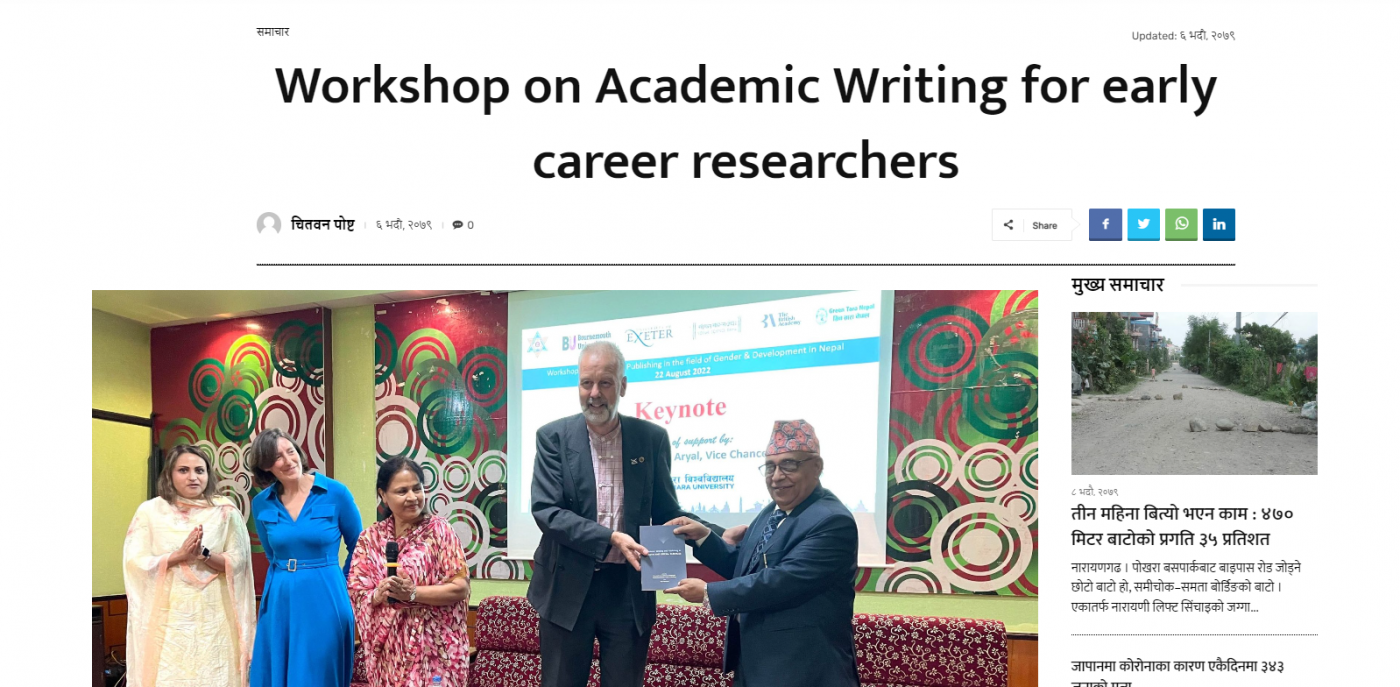
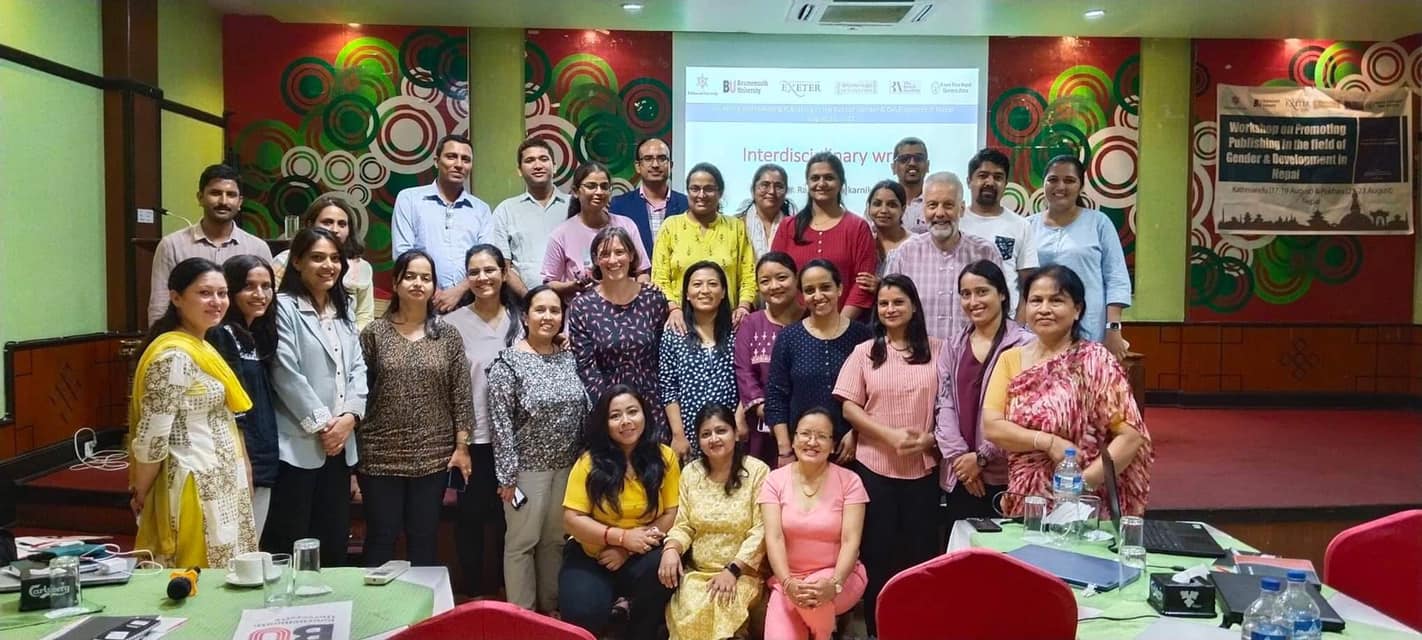
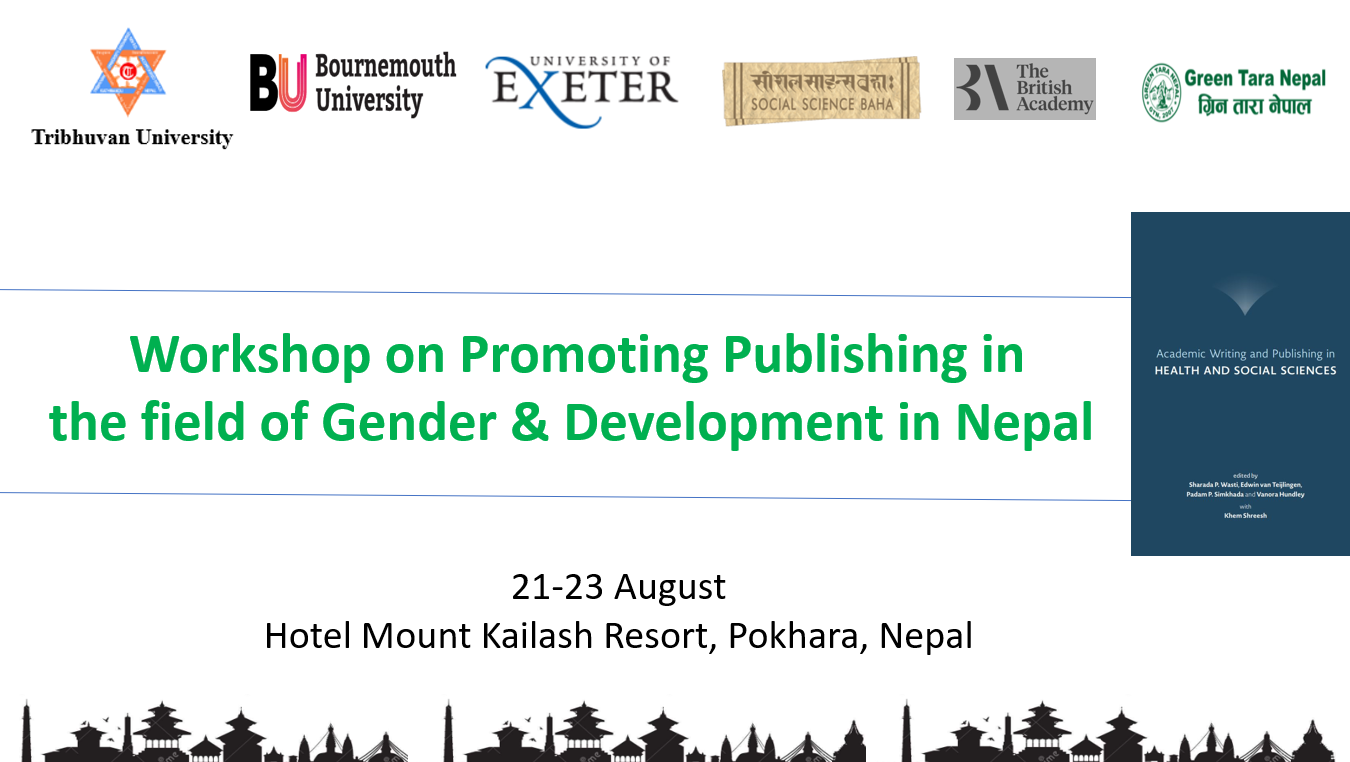


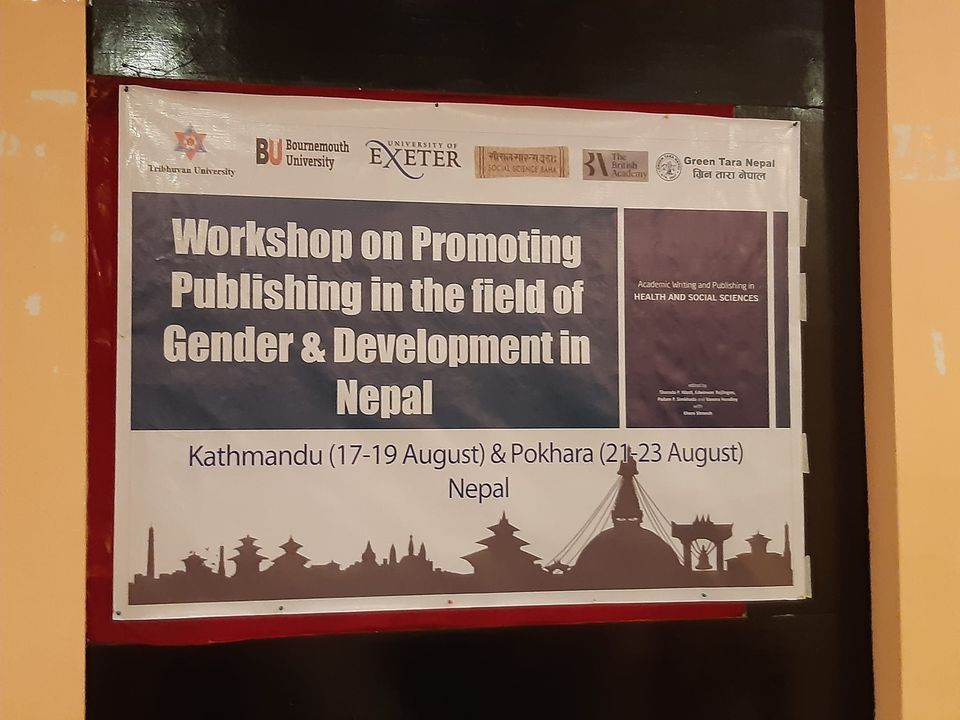
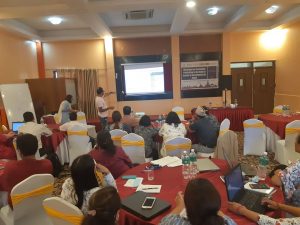

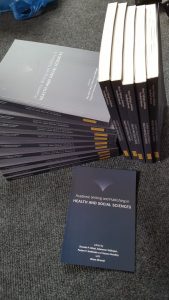

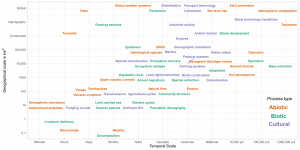


 Please note that a virtual brokerage event for Horizon Europe calls of Cluster 5 Climate, Energy and Mobility will be held on 29 September 2022. This is intended to provide an opportunity to discuss your project ideas with potential partners and to build collaborations and join consortia.
Please note that a virtual brokerage event for Horizon Europe calls of Cluster 5 Climate, Energy and Mobility will be held on 29 September 2022. This is intended to provide an opportunity to discuss your project ideas with potential partners and to build collaborations and join consortia.
















 New Nepal scoping review on maternal & neonatal health
New Nepal scoping review on maternal & neonatal health Fourth INRC Symposium: From Clinical Applications to Neuro-Inspired Computation
Fourth INRC Symposium: From Clinical Applications to Neuro-Inspired Computation Writing policy briefs
Writing policy briefs Upholding Excellence: The Concordat to Support Research Integrity
Upholding Excellence: The Concordat to Support Research Integrity ECR Funding Open Call: Research Culture & Community Grant – Application Deadline Friday 12 December
ECR Funding Open Call: Research Culture & Community Grant – Application Deadline Friday 12 December MSCA Postdoctoral Fellowships 2025 Call
MSCA Postdoctoral Fellowships 2025 Call ERC Advanced Grant 2025 Webinar
ERC Advanced Grant 2025 Webinar Horizon Europe Work Programme 2025 Published
Horizon Europe Work Programme 2025 Published Horizon Europe 2025 Work Programme pre-Published
Horizon Europe 2025 Work Programme pre-Published Update on UKRO services
Update on UKRO services European research project exploring use of ‘virtual twins’ to better manage metabolic associated fatty liver disease
European research project exploring use of ‘virtual twins’ to better manage metabolic associated fatty liver disease